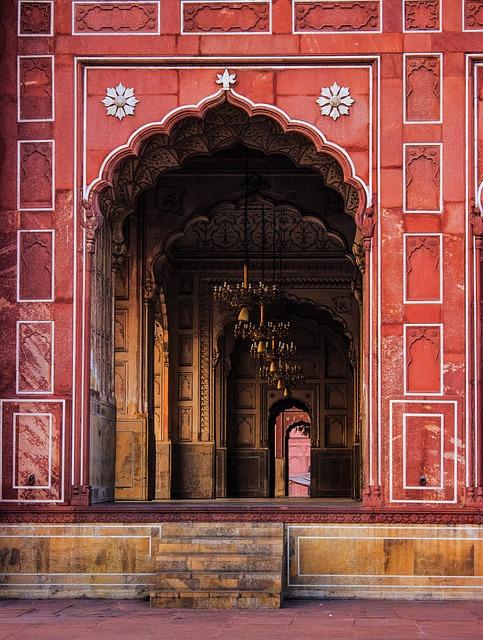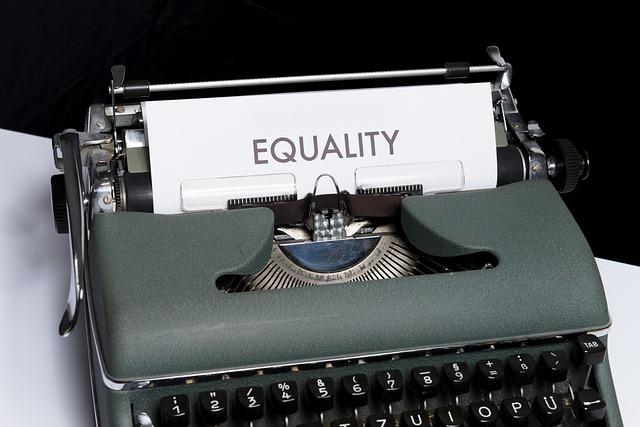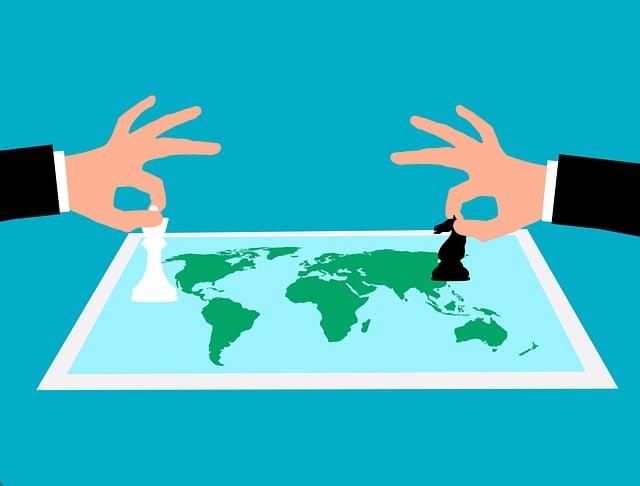In the intricate tapestry of global geopolitics, few nations hold a position as pivotal as Pakistan. Nestled at the crossroads of South Asia, the Middle East, and Central Asia, this vibrant country is not just a regional player but a key architect in the formation of international relationships that ripple across continents. As contemporary challenges such as security, trade, and climate change reshape the world order, Pakistan’s strategic contributions become increasingly vital. From its historic partnerships to its evolving alliances, the nation’s diplomacy serves as a lens through which we can examine broader trends in global international relations. In this article, we delve into Pakistan’s multifaceted role, exploring how its geographic significance, cultural richness, and political maneuvers influence the dynamics of power and foster new avenues for cooperation on the world stage.
Pakistans Geopolitical Position and Its Impact on Global Alliances
Pakistan occupies a pivotal geographical position that not only serves as a bridge between regions but also impacts global security dynamics significantly. Tucked between two major powers—India to the east and Iran to the west—its strategic location along the China-Pakistan Economic Corridor (CPEC) enhances its role in regional connectivity and economic partnerships. This corridor not only promotes trade but also fortifies Pakistan’s ties with China, highlighting the emergence of new power blocs that challenge traditional Western dominance. The positioning of military bases and trade routes further contributes to Pakistan’s influence, making it a vital player in the broader spectrum of international relations.
Moreover, Pakistan’s historical alliances have evolved in response to both external pressures and internal challenges, shaping its foreign policy in ways that resonate globally. By maintaining a delicate balance between relations with the United States, China, and Russia, Pakistan navigates the complexities of modern diplomacy. This is evident in its engagement in global forums where it advocates for issues pertinent to developing nations, such as climate change and counter-terrorism. The following table summarizes Pakistan’s key alliances and their implications for global partnerships:
| Country | Key Alliance | Impact on Global Alliances |
|---|---|---|
| China | Strategic Partnership | Strengthens counterbalance against U.S. influence |
| United States | Defensive Cooperation | Impacts counter-terrorism strategies |
| Russia | Emerging Collaboration | Facilitates energy deals and regional stability |
| Middle Eastern Nations | Economic Alliances | Enhances trade and political backing |

Economic Diplomacy: Pakistans Role in Regional and Global Trade Networks
Pakistan’s economic diplomacy has increasingly positioned the nation as a vital player within both regional and global trade networks. The government’s focus on enhancing trade relations is not only about boosting local industries but also about forging alliances that can reshape the balance of power in international relations. Through initiatives such as the China-Pakistan Economic Corridor (CPEC), Pakistan is harnessing foreign investment to develop its infrastructure, creating a more interconnected regional market. Key components of this strategy include:
- Investment in transport and logistics to facilitate smoother trade routes
- Strengthening ties with emerging economies across Asia
- Enhancing trade agreements to reduce tariffs and barriers
- Fostering bilateral relations with key partners in Europe and the Middle East
This diplomatic approach not only enhances economic growth but also allows Pakistan to assert its influence on the global stage. The establishment of free trade agreements (FTAs) and participation in multilateral organizations empowers Islamabad to advocate for fair trade practices and promote sustainable economic policies that resonate with international standards. The following table highlights some of the significant trade agreements that embody Pakistan’s vision of economic diplomacy:
| Trade Agreement | Year Established | Significant Partners |
|---|---|---|
| Pakistan-China FTA | 2006 | China |
| Pakistan-Malaysia FTA | 2007 | Malaysia |
| Pakistan-SACU FTA | 2021 | Southern African Customs Union |
Through these concrete initiatives, Pakistan is not just a participant in global trade, but an architect of new economic partnerships that promise to foster stability and growth, while enhancing its geopolitical significance amidst emerging global challenges.

Counterterrorism and Security Cooperation: A Pillar of Pakistans Foreign Policy
Pakistan’s foreign policy is increasingly anchored in counterterrorism and security cooperation, responding to both regional and global security dynamics. The nation recognizes that terrorism poses a significant threat to its sovereignty and stability, prompting a concerted effort to forge partnerships with other countries. Key initiatives include:
- Strengthening intelligence sharing with international allies.
- Participating in joint military exercises to enhance operational capabilities.
- Engaging in multilateral dialogues that focus on combating transnational terrorism.
This approach not only aims to bolster Pakistan’s security but also positions it as a pivotal player in the international fight against terrorism. By fostering robust relationships with strategic partners, Pakistan seeks to create a comprehensive framework for security that is reflective of its geopolitical realities. In this context, the nation has focused on initiatives such as:
| Initiative | Partner Countries | Objective |
|---|---|---|
| Regional Counterterrorism Forum | China, Afghanistan, Iran | Enhance regional cooperation in countering terrorism. |
| Joint Military Training | United States, Turkey | Improve military readiness and operational effectiveness. |
| Civilian Security Partnerships | UK, Saudi Arabia | Share best practices in public safety and counter-radicalization. |

Cultural Diplomacy and Soft Power: Enhancing Pakistans Global Image and Influence
In the realm of international relations, cultural diplomacy has emerged as a potent instrument for countries to project their identities and values while fostering mutual understanding. Pakistan’s diverse heritage, rich traditions, and vibrant arts scene provide an invaluable opportunity to enhance its global influence. Through initiatives such as art exhibitions, music festivals, and culinary events, Pakistan can effectively showcase the intricacies of its culture, creating avenues for dialogue and collaboration with other nations. By empowering local artists and filmmakers, Pakistan can craft compelling narratives that resonate on the global stage, allowing it to share its perspective and story more vividly.
Moreover, soft power serves as a catalyst for forging strategic partnerships and enhancing bilateral relations. As nations increasingly gravitate towards non-coercive measures in international diplomacy, Pakistan can leverage its unique assets to build trust and secure its place on the world map. Key strategies may include:
- Establishing educational exchange programs to broaden cultural awareness and foster goodwill.
- Promoting tourism that highlights Pakistan’s scenic landscapes and historical sites.
- Engaging in collaborative projects with international organizations to address global challenges.
By investing in these approaches, Pakistan not only elevates its global image but also contributes to a more interconnected and cooperative world.
Closing Remarks
As we draw the curtain on our exploration of Pakistan’s strategic role in shaping global international relations, it becomes clear that the nation occupies a pivotal crossroads in the geopolitical landscape. From its historical significance on the Silk Road to its contemporary alliances and partnerships, Pakistan has continuously navigated the complexities of regional and global dynamics. Its unique positioning, bolstered by a rich tapestry of culture, an evolving economy, and a youthful populace, allows it to contribute meaningfully to discussions on security, trade, and diplomacy.
Looking ahead, Pakistan’s engagement in international relations will likely be influenced by both its domestic challenges and the broader shifts in the global order. As the world grapples with emerging threats and opportunities—climate change, technological advancements, and shifting power balances—the role of nations like Pakistan will remain crucial in steering conversations towards collaboration and mutual understanding.
In this intricate dance of diplomacy, the narrative of Pakistan is not just one of strategic positioning, but also one that reflects the aspirations and voices of a diverse populace. The path forward is laden with potential, beckoning a commitment to dialogue, cooperation, and an unwavering pursuit of peace. Pakistan’s story in the realm of international relations is not merely a tale of policies and partnerships; it is a testament to the enduring power of connection, resilience, and the belief that nations can forge a better tomorrow together.



